Real Syrian lives in Lebanon
One in four people in Lebanon is a Syrian refugee. The IRC is providing employment support to help Syrians build a future far from their war-torn home and to assist struggling locals.
One in four people in Lebanon is a Syrian refugee. The IRC is providing employment support to help Syrians build a future far from their war-torn home and to assist struggling locals.
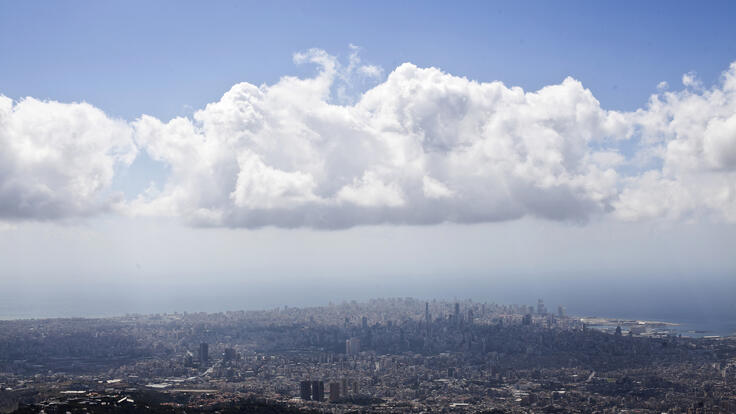
A view of Beirut, Lebanon, home to 300,000 Syrian refugees.
One in four people in Lebanon is a Syrian refugee. No country in the world supports as many Syrian refugees proportional to its population. Photo: Jacob Russell/IRC
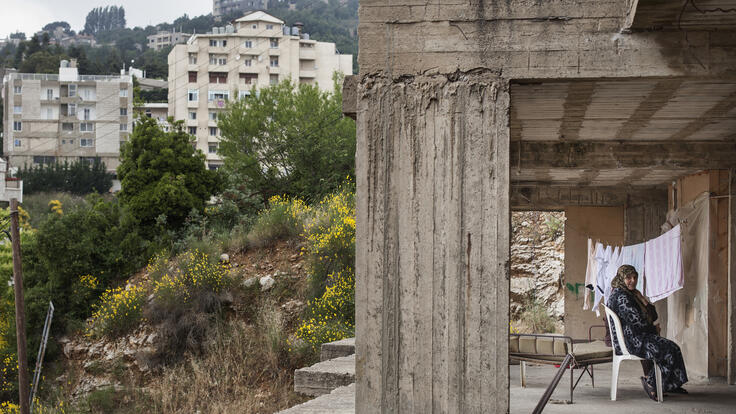
A Syrian woman sits in her home, an unfinished garage without running water or toilets, in Qlaiaat, Mount Lebanon.
There are no formal camps for Syrians in Lebanon, leaving refugees scattered across the country in more than 1,400 communities, often hidden from view. Around one-fifth of them live in unfinished or abandoned buildings, or in ad-hoc tent settlements. Almost all struggle to make rent in cramped quarters in the country’s poorer neighborhoods. Photo: Jacob Russell/IRC
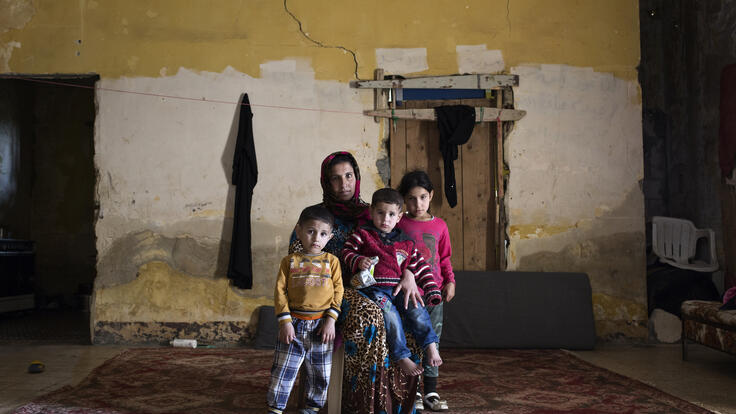
A Syrian woman and three of her children in their home, an abandoned building in Hammana, Mount Lebanon. She shares the building with three more families from Idelb in northern Syria.
As the Syrian civil war rages on, refugees can’t return home, yet can’t earn sustainable incomes to support themselves and their families. Half of all Syrian refugees in Lebanon live in extreme poverty; of those formally registered, only half are eligible for U.N. World Food Program aid, which in any case amounts to just $23 per person per month. Photo: Jacob Russell/IRC
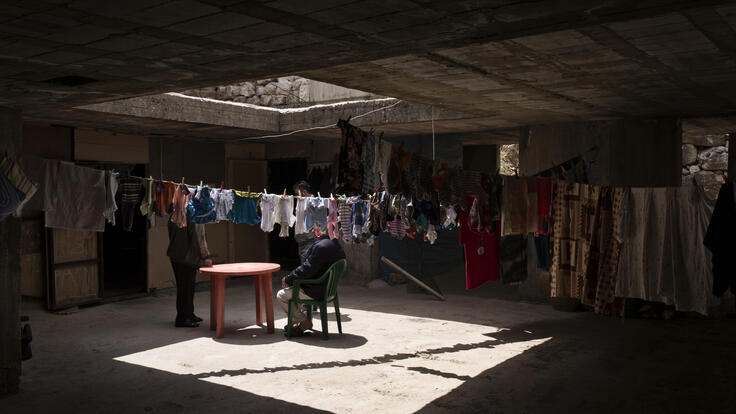
Two of the 35 Syrians who have fashioned a home in an unfinished building in Qlaiaat, Mount Lebanon. Most are either elderly or very young.
Sixty percent of refugees worldwide live in towns and cities; their average length of displacement is 25 years. Long-term solutions are needed to allow refugees to rebuild their lives and contribute to the economy of their host communities.
Most Syrian refugees in Lebanon have difficulty obtaining the legal status necessary to work. To make ends meet, Syrian doctors, engineers and teachers often take off-the-books low-paying jobs; nine out of 10 earn less than $270 a month, 40 percent below the minimum wage. Photo: Jacob Russell/IRC
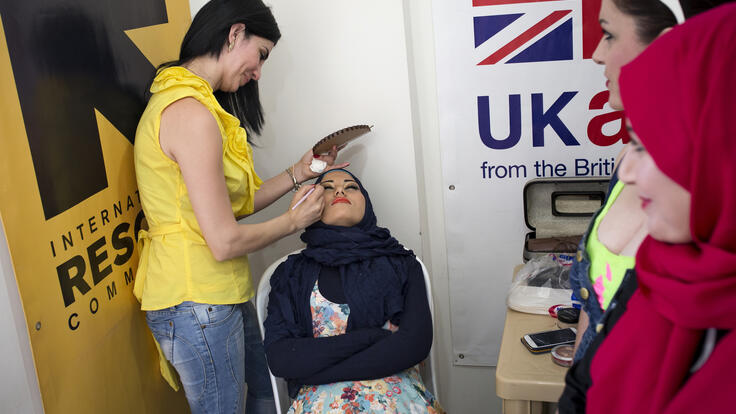
Syrian and Lebanese women take part in a cosmetology-training session at the IRC’s livelihoods center in Mount Lebanon.
A new IRC report, funded by UK Aid, examines the issues facing Syrian refuges who flee to cities in Lebanon and Jordan hoping to find suitable work. The best way to help these refugees, the report argues, is to steer them to opportunities that lead to long-term work. Photo: Jacob Russell/IRC
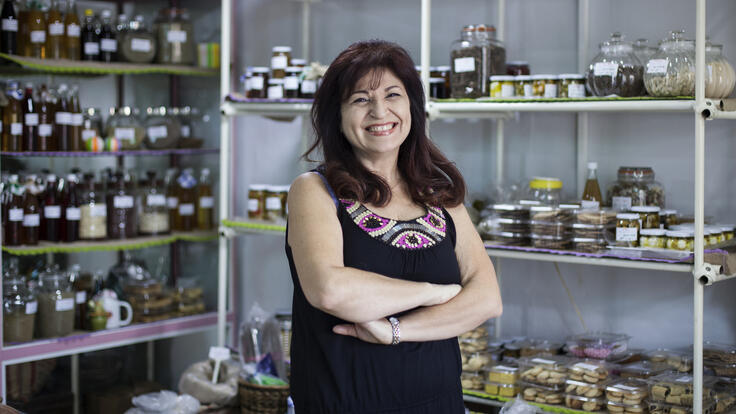
Suzanne is a Lebanese woman from Beit Mery in Mount Lebanon. The IRC provided her with a grant to open a business selling homemade food.
Following this approach, the IRC is providing direct cash relief and creating income-generating activities for over 30,000 vulnerable people in Lebanon. Small grants, more than half of which have been awarded to women, are helping entrepreneurs establish microenterprises guided by rigorous business plans and business counseling. Photo: Jacob Russell/IRC
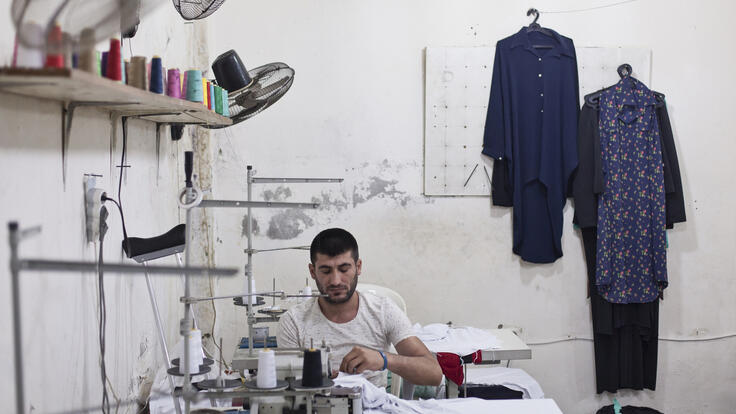
Mohamed from Kobanî, Syria, was unable to follow his family to Europe because of a disability. He found himself alone and unemployed in Beruit. The IRC provided him with a tailoring apprenticeship.
The IRC has placed more than 300 apprentices with some 200 employers in Beirut and northern Lebanon. One major advantage of the program: the IRC closely vets each employer and clearly explains the rights of apprentices. The exploitation of Syrian refugees has become a growing concern. Photo: Jacob Russell/IRC
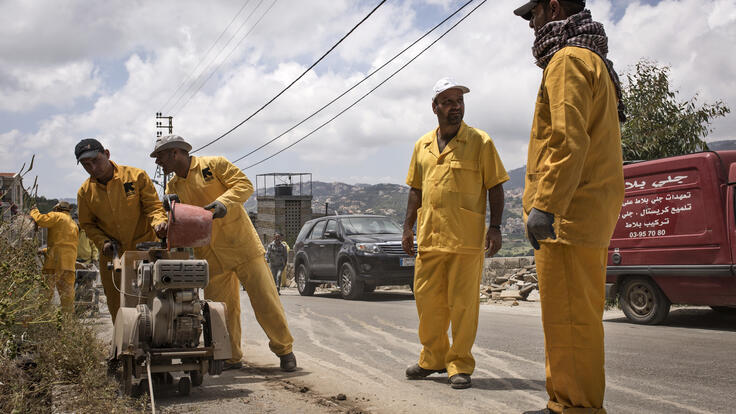
Syrian refugees in an IRC cash-for-work project lay sewage pipes in Salima, Mount Lebanon.
More than 2,200 vulnerable Syrian refugees and Lebanese are earning vital income from IRC-run cash-for-work projects. The IRC pays for around 200 people each month in the Mount Lebanon and Akkar regions to collect trash or support community maintenance projects—rehabilitating roads, painting buildings and reestablishing public gardens. Photo: Jacob Russell/IRC
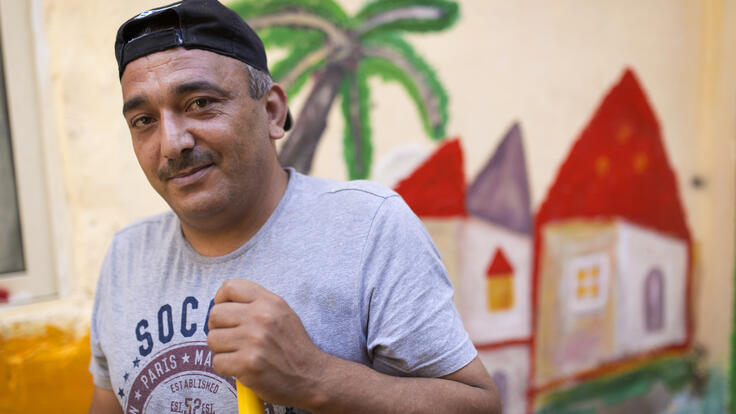
Yusef from Aleppo came to Beirut with his family after his wife was killed and his home destroyed by an airstrike. The IRC pays him to work on projects to improve local neighborhoods. Now Yusef no longer must send his children to sell tissues on the street to make ends meet. Photo: Jacob Russell/IRC
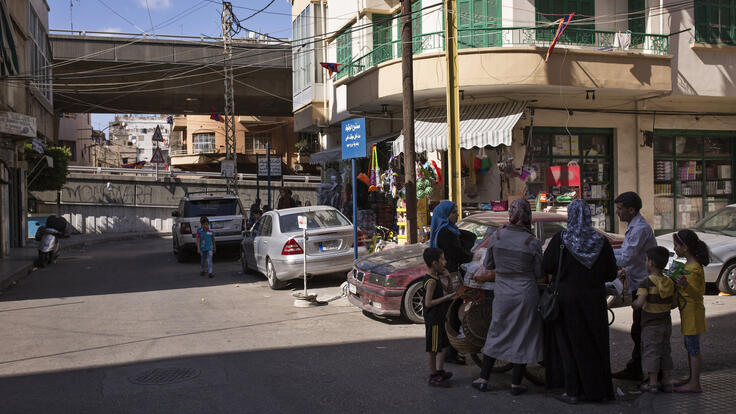
Syrian refugees in Lebanon find themselves living alongside locals who also are struggling. The increasing competition for jobs, as well as rising demand for health care and education, can lead to tension between these groups.
To improve relations, IRC work projects welcome both refugees and locals. The goal is to improve communities, grow businesses and expand job opportunities. Allowing refugees to participate in economic life has benefits for the host community. Photo: Jacob Russell/IRC
Get the latest news about the IRC's innovative programs, compelling stories about our clients and how you can make a difference. Subscribe